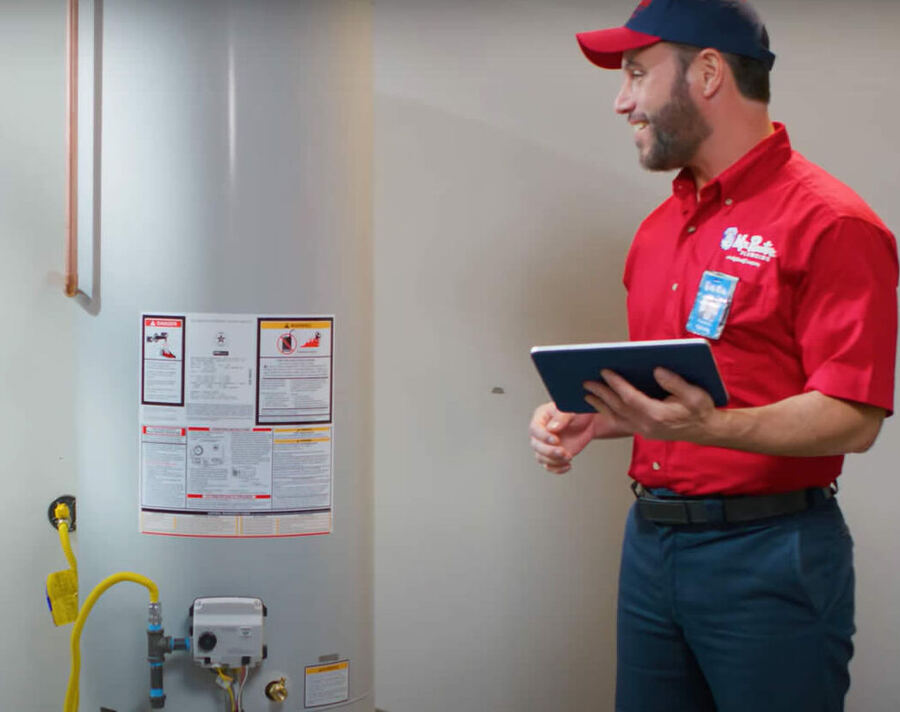Schedule a Plumber This Saturday to Get 50$ OFF
Schedule a Plumber This Saturday to Get 50$ OFF

If you've ever turned on your faucet or shower and noticed that the water pressure seems weaker than usual, you might wonder what the cause could be. While there are several possible reasons for pressure loss in your home, one potential culprit could be your water heater. This article by Mr. Rooter Plumbing will explore how this can happen, why it matters, and what you can do about water heater repair.
When your plumbing system is working correctly, your water heater shouldn't affect the water pressure in your home. However, if something goes wrong with it, the situation changes. There are a few reasons why a bad water heater might cause low water pressure.
If you notice any of these problems with your water heater, it’s essential to call a professional plumber immediately. A plumbing repair service can diagnose the issue and help restore your water pressure to normal levels.
How can you tell if your water heater is responsible for the low water pressure in your home? There are a few key signs to look for:
If you notice any of these signs, you should contact a plumbing service to have your water heater inspected. A qualified plumber will be able to determine whether your water heater is the cause of your pressure problems.
If your water heater is causing a drop in water pressure, there are a few potential solutions, depending on the root cause of the issue. Here are some common fixes:
If you suspect your water heater is causing low pressure, it’s always a good idea to call a professional plumbing service. While some minor maintenance tasks, like flushing the tank, can be done on your own, other issues require the expertise of a plumber.
A plumbing repair service can also check other parts of your system to rule out any additional causes of pressure loss, such as clogged pipes or a malfunctioning water pump.
Regular maintenance is critical to avoiding pressure loss in the future. Scheduling routine inspections and servicing your water heater can help catch problems early before they result in pressure issues.
A bad water heater can cause pressure loss, especially if it suffers from sediment buildup, corrosion, leaks, or faulty valves. If you're experiencing low water pressure, your water heater could be the source of the problem. In this case, contacting Mr. Rooter Plumbing is essential to diagnose and fix the issue.
In addition to being a crucial component of every home's plumbing system, sewer lines are also frequently disregarded because they are out of sight. Nonetheless, they shouldn’t’ be out of…
When to Get a Drain Replacement Have you ever considered what happens to the water after using it? Water gets drained through our drains, but what happens…
Common Issues That Indicate You Need a Toilet Repair Noticing problems with the toilets is relatively easier since it’s one of the most commonly used fixtures inside…